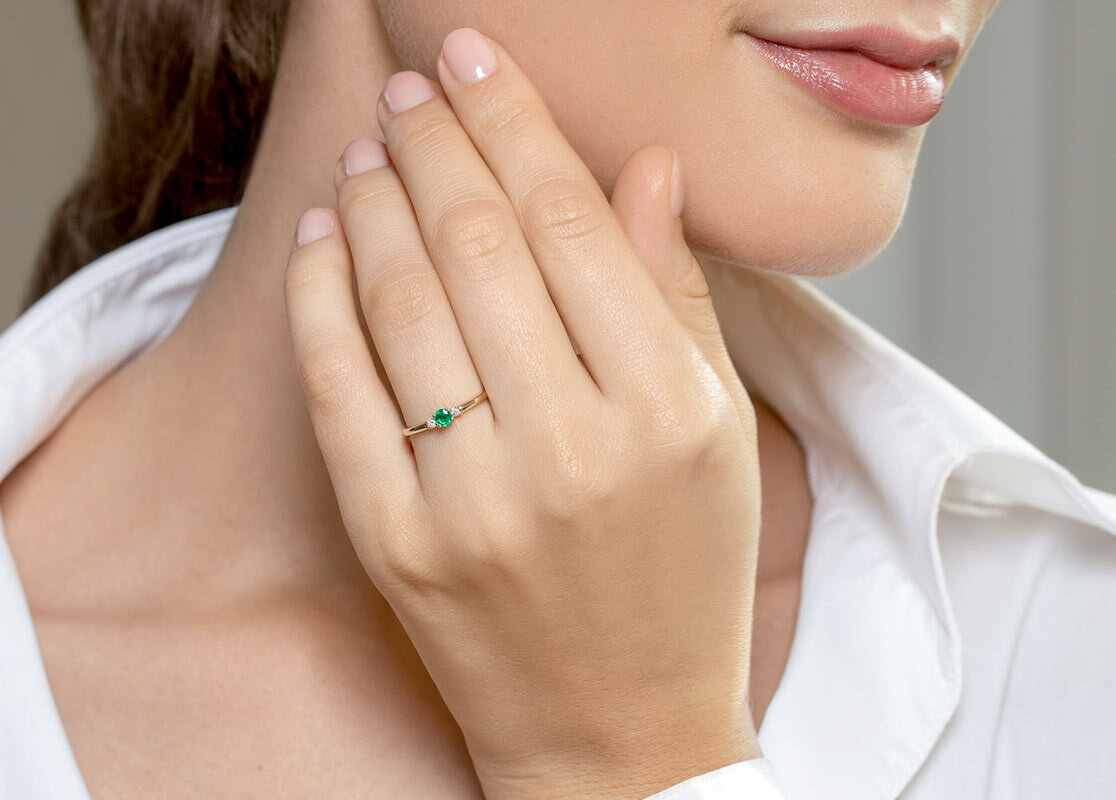In the recycled gold in jewellery, two significant trends are reshaping the landscape: the use of recycled gold and the adoption of lab-grown diamonds. These innovations not only cater to the aesthetic desires of consumers but also embody a growing commitment to sustainability and ethical practices in the jewelry industry. As we delve into the benefits and significance of these materials, it becomes clear that they are more than just alternatives; they represent a transformative shift in how we perceive luxury and responsibility.
Understanding Recycled Gold
Recycled gold is gold that has been previously used in jewelry or other products and has been reclaimed and refined for reuse. This practice offers several environmental and ethical benefits:
Environmental Impact
Mining for new gold involves extensive land disruption, habitat destruction, and significant energy consumption. In contrast, using recycled gold dramatically reduces the ecological footprint of jewelry production. By recycling gold, we minimize the demand for new mining operations, thereby conserving natural resources and protecting fragile ecosystems.
Quality and Purity
Recycled gold is often of the same quality and purity as newly mined gold. The refining process ensures that the gold is returned to its original state, often at higher purity levels than some mined gold. As a result, consumers can enjoy exquisite jewelry pieces that are not only beautiful but also possess integrity in their craftsmanship.
Ethical Considerations
Many consumers today are increasingly aware of the ethical implications of their purchases. The jewelry industry has faced scrutiny over conflict gold — gold that is mined in war zones and sold to finance armed conflict. By choosing jewelry made from recycled gold, consumers can feel confident that their purchases support ethical practices, free from the stains of exploitation and human rights abuses.
Lab-Grown Diamonds: A Modern Marvel
Lab-grown diamonds are another revolutionary advancement in the jewelry sector. Created using advanced technological processes that replicate the natural conditions under which diamonds form, these gems are chemically and physically identical to their mined counterparts. However, they come with a myriad of advantages:
Sustainability
The production of lab-grown diamonds has a significantly lower environmental impact compared to traditional diamond mining. The mining process is notorious for its ecological devastation, including large-scale land degradation and significant carbon emissions. In contrast, lab-grown diamonds require less energy and water and produce far fewer carbon emissions.
Affordability
Lab-grown diamonds offer an attractive price advantage, typically costing 20% to 40% less than their mined equivalents. This price differential allows consumers to purchase larger, higher-quality stones for the same budget, enhancing the overall appeal of lab-grown diamonds in the market.
Ethical Sourcing
With growing concerns about the ethical sourcing of natural diamonds, lab-grown diamonds provide a guilt-free alternative. Each lab-grown diamond comes with a guarantee of ethical production, eliminating the risk of conflict diamonds entering the supply chain. This transparency is vital for modern consumers who value corporate responsibility and ethical practices.
Combining Recycled Gold and Lab-Grown Diamonds
When combined, recycled gold and lab-grown diamonds create a powerful statement in the jewelry industry. This pairing reflects a commitment to sustainability, ethical responsibility, and aesthetic excellence.
Craftsmanship and Design
Jewelry designers are increasingly exploring innovative designs that incorporate both recycled gold and lab-grown diamonds. The versatility of these materials allows for creativity and artistry, resulting in unique pieces that resonate with consumers’ values. Whether it’s a stunning engagement ring or an elegant necklace, the craftsmanship involved in creating jewelry from these materials speaks to the high standards of quality and design.
Personalization and Customization
The ability to customize jewelry using recycled gold and lab-grown diamonds allows consumers to create pieces that truly reflect their personal style and values. Bespoke jewelry that utilizes sustainable materials is not just a trend; it’s a testament to the individual’s commitment to a better future. Many jewelers now offer services to customize designs, ensuring that each piece is one-of-a-kind.
The Consumer Shift Towards Sustainability
As awareness about environmental issues and ethical considerations continues to grow, consumers are increasingly prioritizing sustainable options in their purchasing decisions. The rise of recycled gold and lab-grown diamonds is a direct response to this shift.
Market Trends
Recent studies indicate that more than 70% of millennials and Generation Z consumers prefer brands that emphasize sustainability. This trend is leading to a significant transformation in the jewelry industry, with more companies adopting sustainable practices and transparent sourcing. Brands that embrace recycled gold and lab-grown diamonds are not only appealing to these demographics but are also paving the way for a more sustainable future.
Educating Consumers
To further this movement, educating consumers about the benefits of recycled gold and lab-grown diamonds is crucial. Transparency in sourcing, production processes, and the overall environmental impact can empower consumers to make informed decisions. Jewelers that prioritize education and transparency will likely build stronger relationships with their customers and establish brand loyalty.
Conclusion: A Bright Future for Jewelry
The future of jewelry lies in the harmonious blend of recycled gold and lab grown diamonds. By choosing these sustainable materials, consumers can enjoy exquisite pieces while contributing to a healthier planet and a more ethical industry. As the market continues to evolve, it’s clear that this shift is not just a trend but a movement toward a more responsible approach to luxury.

